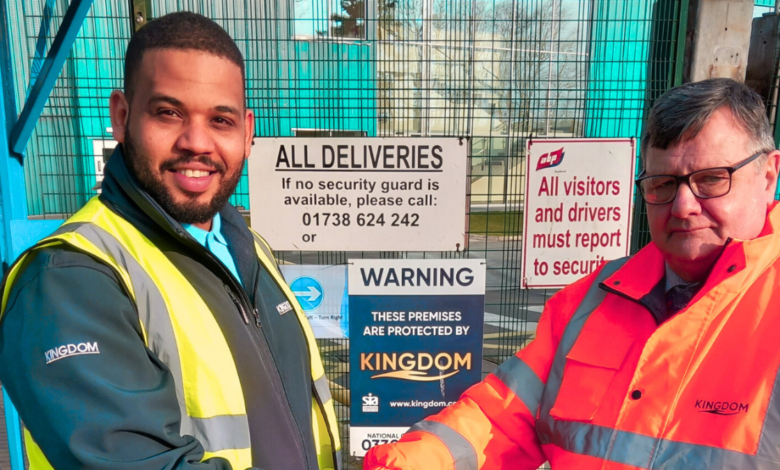
Kingdom Security: A Complete Guide to Protection and Stability
Kingdom Security: When you hear the term kingdom security, it might immediately bring to mind ancient castles, moats, and armored guards keeping watch over stone walls. But kingdom security is much more than medieval imagery. It is about the overall safety, resilience, and protection of a domain whether that’s a literal kingdom, a modern nation, or even symbolic realms like organizations, businesses, or digital spaces. At its core, this security combines strategy, defense, trust, and sustainability to create an environment where people, assets, and values are preserved.
In today’s world, the idea of kingdom security has expanded into several layers. It’s no longer just about physical barriers; it involves technology, policies, intelligence, diplomacy, and community cooperation. The concept has taken a timeless foundation and adapted it into the digital age, where threats look very different from those of centuries ago. By understanding the dimensions of kingdom security, one can appreciate how deeply it impacts stability, growth, and peace of mind.
The Origins of Kingdom Security
When people talk about kingdom security, they often imagine kings and queens of the past building strong fortresses to protect their lands. Security in kingdoms historically meant protection from invaders, thieves, and internal rebellion. Massive walls, hidden passageways, and loyal guards were symbols of power and assurance for citizens. The stronger the security, the more prosperous and confident a kingdom appeared to the outside world.

The interesting thing is that while the tools have changed, the philosophy of this security hasn’t. Just like rulers of the past invested in shields and soldiers, leaders today invest in policies, surveillance, cybersecurity, and global partnerships. The essential purpose remains the same: safeguarding what matters most. Whether it’s protecting people, cultural heritage, resources, or ideas, the legacy of kingdom security still shapes the way societies build their defenses.
Why Kingdom Security Still Matters Today
Some might argue that kingdoms are outdated concepts, so why talk about kingdom security? The truth is, every modern state, company, and digital platform functions like a kingdom in its own right. A nation needs border control, law enforcement, and military power. A business requires internal policies, firewalls, and secure data systems. Even an individual’s personal space and privacy fall under the umbrella of security.
By framing these in the context of kingdom security, it becomes easier to see the bigger picture. The phrase isn’t just poetic it emphasizes the interconnectedness of protection strategies. A breach in one part of the system often weakens the whole structure. That’s why modern societies continue to embrace kingdom security principles, even if the language has evolved. It’s not just about preventing threats; it’s about maintaining order, peace, and trust across all layers of daily life.
Key Elements of Kingdom Security
At the heart of kingdom security are several crucial elements that work together like gears in a clock. Without one, the others become less effective.
The first element is physical protection. This includes traditional measures like guards, barriers, surveillance cameras, and access control. Physical defense is still necessary because threats can come from the outside or even from within. For kingdoms of the past, this meant fortresses and armies. For modern organizations, it could mean secure buildings, alarm systems, or professional security services.
The second element is information and intelligence. A kingdom can only be secure if it knows where threats might emerge. In ancient times, this meant spies or scouts. Today, it involves cybersecurity experts, data analysts, and intelligence agencies. This layer of kingdom security ensures leaders know to act before problems escalate. A well-informed defense system is often the difference between stability and disaster.
Another critical element is policy and law enforcement. No kingdom can thrive if chaos rules within its borders. Rules must be enforced fairly and consistently to ensure the safety of everyone. This applies to nations with their legal systems and businesses with internal codes of conduct. The idea is to create a structured environment where people feel safe, knowing that breaches of security will be addressed promptly.
The Human Side of Kingdom Security
It’s easy to think of kingdom security only in terms of walls, technology, and systems, but the human element is just as important. A kingdom without loyal and well-trained people can never truly be secure. Guards, workers, leaders, and even everyday citizens play an active role in maintaining safety. Trust and cooperation are invisible forces that make physical defenses stronger.
For instance, in a modern business setting, employees who are educated about security protocols are far less likely to fall for scams or expose sensitive data. Similarly, communities that trust their local security systems are more willing to cooperate in keeping neighborhoods safe. In this way, the human side of kingdom security is both a shield and a signal that the structure works for everyone.







